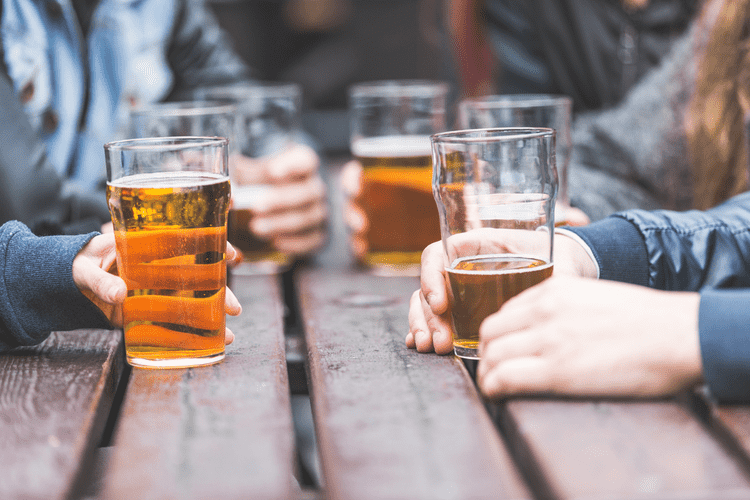Addiction Recovery: Overcoming Your Alcohol or Drug Problem
TODAY spoke with several people who consider themselves to be in recovery to learn about what their journeys have been like, what works for them and what recovery really means. This means that recovery leads to changes, preserves the desired new lifestyle, and incorporates these factors into daily life. Given the multidimensional side effects of addiction, recovery is also multiaxial(biological, psychological, social, and spiritual, beyond abstinence) (5, 10, 18, 20, 22, 23). Recovery refers to an internal and external change in relations, attitudes, thoughts and emotions, or identity change (5, 8, 10, 19, 21-28). The individual’s viewpoint on his/her addiction forms the basis for this model, which reflects the spiritual viewpoint of the Alcoholics Anonymous while covering a major aspect of recovery (19).
It may include clinical treatment, medications, faith-based approaches, peer support, family support, self-care, and other approaches. Recovery is characterized by continual growth and improvement in one’s health and wellness and managing setbacks. Because setbacks are a natural part of life, resilience becomes a key component of recovery. Recovery is a process that continues after formal treatment ends. The recovery process from drug or alcohol addiction often involves a person making a significant change(s) to improve their quality of life, including overall health and wellness.
What lessons can be learned from addiction recovery stories?
They may know something about the person’s deepest aspirations and voice them as a reminder that can help the person remain on the road to recovery. And they can help plan healthy 11 Gift Ideas for the Sober Person in Your Life joint activities to ensure that there are good days. They also value having role models of recovery and someone to call on when the recovering self is an unsteady newborn.
• Developing a detailed relapse prevention plan and keeping it in a convenient place for quick access when cravings hit, which helps guard against relapse in the future. A good relapse prevention plan specifies a person’s triggers for drug use, lists several coping skills to deploy, and lists people to call on for immediate support, along with their contact information. The best way to handle a relapse is to take quick action to seek help, whether it’s intensifying support from family, friends, and peers or entering a treatment program. One advantage of mutual support groups is that there is likely someone to call on in such an emergency who has experienced a relapse and knows exactly how to help. In addition, immediately attending or resuming group meetings and discussing the relapse can yield much advice on how to continue recovery without succumbing to the counterproductive feeling of shame or self-pity.
Breaking Down the Stigma of Addiction: A Witness’ Story Through Art
Over time, reward circuits regain sensitivity to respond to normal pleasures and to motivate pursuit of everyday activities. Areas of executive function regain capacity for impulse control, self-regulation, https://accountingcoaching.online/why-do-i-bruise-so-easily/ and decision-making. In addition, self-care is a vital foundation for a healthy new identity. At the very least, self-care should include sleep hygiene, good nutrition, and physical activity.
- Binge drinkers, for example, may be fine with going for weeks or even months without a drop of alcohol, but when they do drink, they have trouble stopping themselves from consuming far too much.
- Such biological differences can influence whether substance use continues and increases, remains “social” and occasional, or does not occur at all.
- By establishing a well-rounded support network, Sarah successfully navigated the challenges of addiction recovery and now leads a fulfilling and sober life.
- Additionally, relapse is always a possibility, even after many years.
We need to relinquish certain restrictions of the theoretical definition, but instead exert them practically. The researchers and clinicians need to agree on the criteria that determine the indicators of recovery in persons for assessing the recovery. The clarity of language is also a major determinant of our success in making interventions in families, communities, individuals, and AOD cases. Commonly, the findings may help health care professionals to understand the concept of addiction recovery, which is important in making improvements in all aspects of recovery.not only abstinence. Some of the recovery organizations Unick and Tuten are working with are operations that are using sophisticated methods for data collection and using that evidence to influence practice, citing as one example Mosaic Community Services. Various HEAL-funded research projects, such as the HEALing Communities Study, partner with recovery organizations to help communities choose the most effective strategies to meet local needs and conditions.
Your Health: A roundup of the newest trends in Florida’s health care
Embarking on the journey of recovery from drug addiction involves navigating a structured path toward healing. In this section, we’ll dive into the various stages of the recovery process, from acceptance and commitment to developing coping strategies, rebuilding relationships, and making lifestyle changes. Along the way, we’ll explore the importance of detoxification and withdrawal, the transformative power of therapy and counseling, and the invaluable support provided by establishing a strong network. Let’s delve into the steps that pave the way toward a healthier and more fulfilling life. The goal of recovery support services – which were originally developed by people in recovery and have grown largely outside of the health care system – is to help people either in or seeking recovery from addiction build and sustain positive social networks. They address multiple factors including education, job training and employment, positive family and social relationships, and housing opportunities, and they work to meet many other personal and professional needs.

They provide hope, guidance, and resources, and promote understanding, ultimately inspiring individuals to take the necessary steps toward their own recovery journey. The turning point in drug addiction recovery serves as hope for others facing similar struggles. By sharing these stories, we promote understanding, inspire change, and provide renewed motivation for those seeking recovery.
The Nitty-Gritty Skills of Recovery
Saying a mantra, substituting thoughts of recovery goals, praying, reading something recovery-related, reaching out to someone supportive—all are useful tactics. Located on the historic peninsula of Charleston, South Carolina, Lantana Recovery takes a modern approach to Substance Use Disorder treatment, offering intensive clinical care while also immersing our clients in local Charleston culture. Also in Alzheimer developments, a new bill introduced into the Florida Legislature could impact Floridians facing Alzheimer’s, cancer and other diseases. The bill (SB 964 / HB 885) would require state-regulated health insurance plans to cover comprehensive biomarker testing for diseases like Alzheimer’s.

In “A Life More Ordinary” Processes of 5-Year Recovery From Substance Abuse. To ensure effective interventions, these factors should be implemented within a framework of personalized and timely care. Treatment options include therapy, counseling, detoxification, and medication-assisted treatment. Family support and a stable, safe living environment also contribute to the recovery process.
Remember, the first step towards recovery is seeking help, and both outpatient and inpatient treatment options can effectively assist individuals in overcoming drug addiction. One inspiring story that highlights the benefits of professional support is the case of Sarah, who struggled with drug addiction for many years. Through the guidance of a dedicated counselor and the structured support provided by a treatment program, Sarah was able to address the root causes of her addiction, develop a relapse prevention plan, and rebuild positive relationships. With ongoing professional support, Sarah has maintained her sobriety and pursued a fulfilling and healthy life. In summary, drug addiction recovery stories are a powerful tool in encouraging seekers of recovery.


